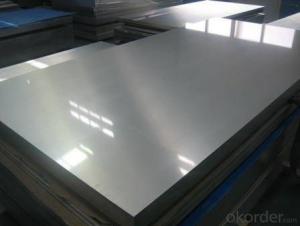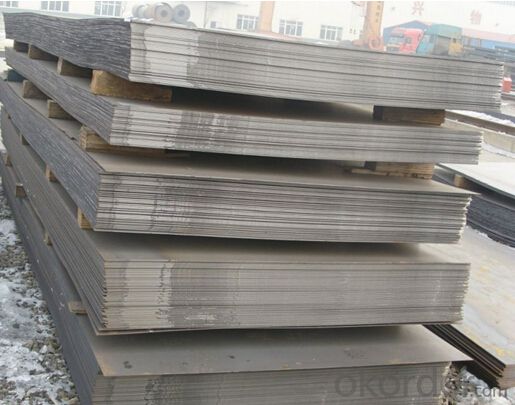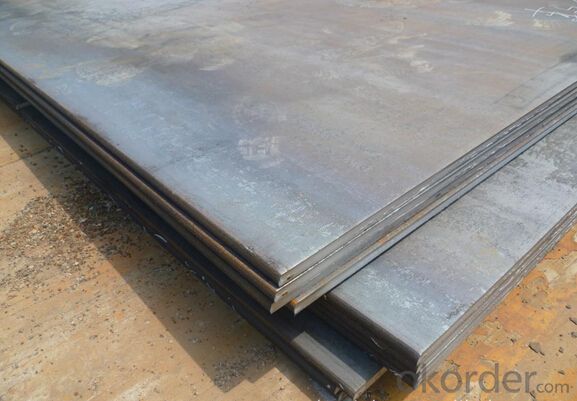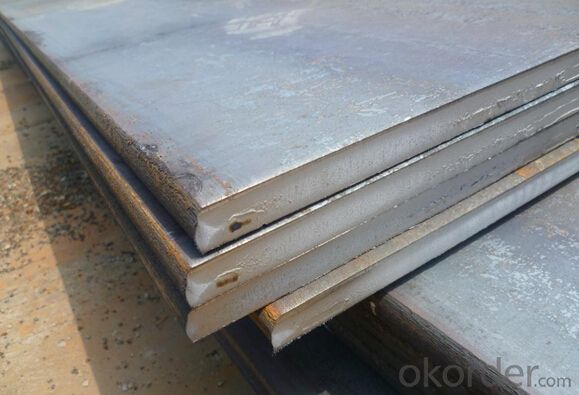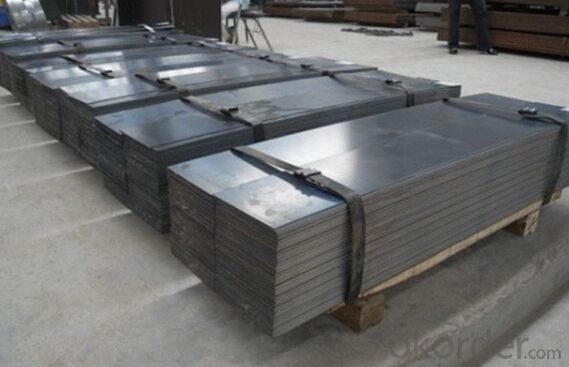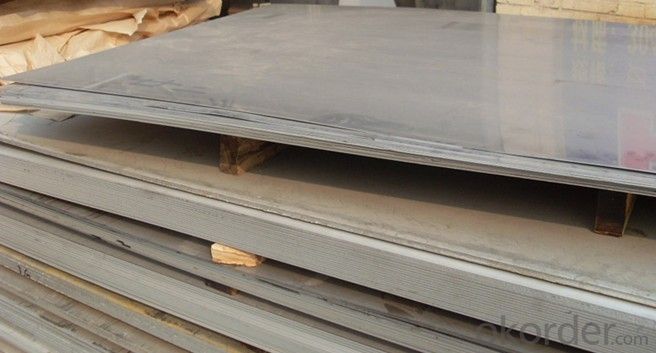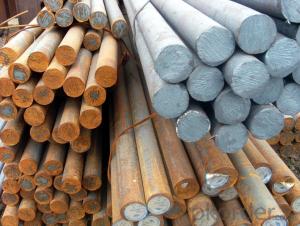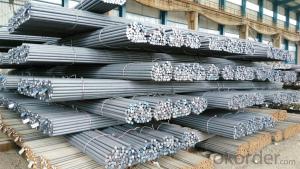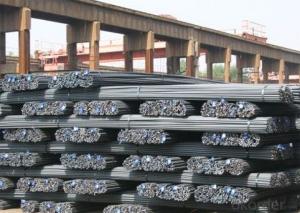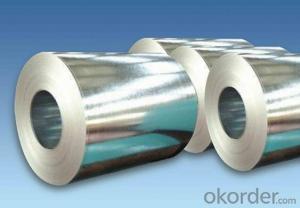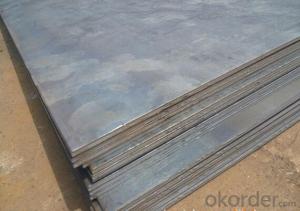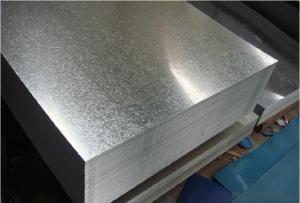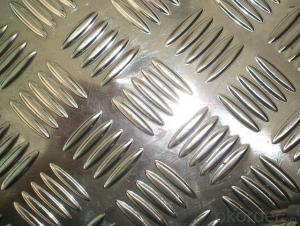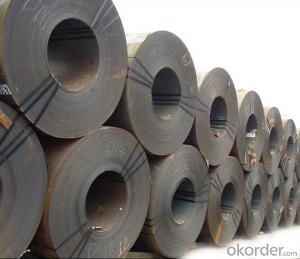S235 S355 SS400 A36 HRC Hot Rolled Steel Coil/Hot Rolled Steel Sheet
- Loading Port:
- Tianjin
- Payment Terms:
- TT OR LC
- Min Order Qty:
- 3 m.t.
- Supply Capability:
- 100000 m.t./month
OKorder Service Pledge
OKorder Financial Service
You Might Also Like
Specification
S235 S355 SS400 A36 HRC Hot Rolled Steel Coil/Hot Rolled Steel Sheet
Detailed Information of S235 S355 SS400 A36 HRC Hot Rolled Steel Coil/Hot Rolled Steel Sheet
| C | Si | P | S | yield Strength MAp | Tensile strength MAp | Elongation % | ||
| A36 | 0.24 | 0.4 | 0.045 | 0.03 | 250 | 400-520 | 26 | |
| C | Si | Mn | P | S | Cu | |||
| A283 | ≤0.27 | 0.15-0.4 | ≤0.9 | ≤0.035 | ≤0.04 | ≥0.2 | ||
| Thickness: | 6mm, 8mm, 12mm, 16mm, 20mm, 25mm, 30mm, 50mm, 80mm, 100mm, 150mm, 200mm | |||||||
| Width: | 1500mm, 1800mm, 2000mm, 2200mm, 2500mm | |||||||
| Length: | 6000mm, 8000m, can cut to width and length | |||||||
| Packing Details; | according to customer‘s require or export’s standard | |||||||
| Delivery time; | 7 days for stock sizes, 20-25 days for new production sizes | |||||||
| Port: | Tianjin China | |||||||
Related Products Overviews of S235 S355 SS400 A36 HRC Hot Rolled Steel Coil/Hot Rolled Steel Sheet
Product Name | Typical Grades | Diameter(mm) | Standard Adopted |
Carbon Steel | 20 (1020/S20C/C22) |
Ø16-Ø300 |
GB/SAE/ JIS/DIN |
40 (1040/S40C/C40) | |||
45 (1045/S45C/C45) | |||
Bearing Steel | GCr9 (51100/SUJ1) |
Ø12-Ø250 | |
GCr15 (52100/SUJ2/100Gr6) | |||
GCr9SiMn (A485-Gr.1/SUJ3) | |||
Cr-Mo Steel | 20Cr (5120/SCr420H/20Cr4) |
Ø12-Ø250 | |
40Cr (5140/SCr440/41Cr4) | |||
42CrMo(4140/SCM440/42CrMo4) | |||
Gear Steel | 20CrNiMo |
Ø16-Ø600 | |
20CrMn(5115/SMnC420/20MnCr5) | |||
20CrNiMo(8620/SNCM220/20CrMiMo2) |
Related Products Application of S235 S355 SS400 A36 HRC Hot Rolled Steel Coil/Hot Rolled Steel Sheet
Carbon Steel | l Mold bottom l Plastic mold l Construction machinery parts l Automobile parts l Security grills l Screens l Construction |
Bearing Steel | l Aerospace l Navigation l Nuclear energy l Chemical industry l Electronic information l Petrochemical l Instrument and meter l Transportation |
Cr-Mo Steel | l Mechanism & Fasteners gear l Stressed components for vehicles l Engines and machines l Parts of larger cross-section |
Gear Steel | l All kinds of gears l Statically and dynamically stressed component for vehicles l Engines and machine l Larger cross-section parts l Crankshafts |
Company Introduction of S235 S355 SS400 A36 HRC Hot Rolled Steel Coil/Hot Rolled Steel Sheet
CNBM International Corporation is the most import and export platform of CNBM group(China National Building Material Group Corporation) ,which is a state-owned enterprise, ranked in 270th of Fortune Global 500 in 2015.
With its advantages, CNBM International are mainly concentrate on Cement, Glass, Iron and Steel, Ceramics industries and devotes herself for supplying high quality series of refractories as well as technical consultancies and logistics solution.
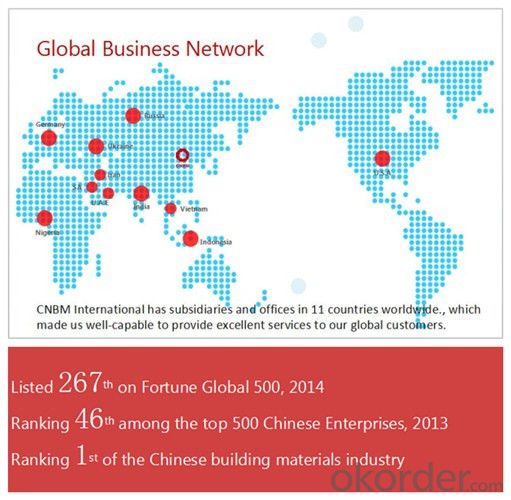
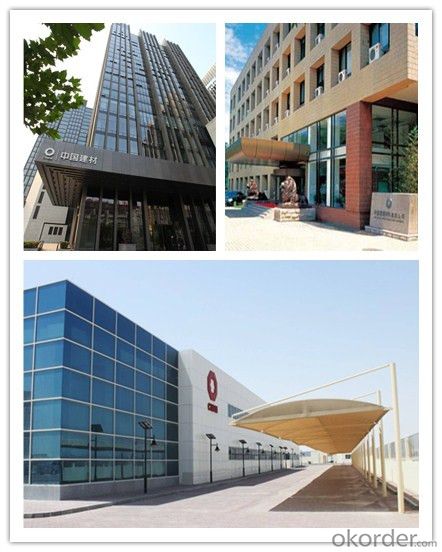
After-sale service | l CNBM provides the services and support you need for every step of our cooperation. We’re the business partners you can trust; you can relax and get on with doing business. l For any problem, please kindly contact us at any your convenient time, we’ll reply you in our first priority within 24 hours
|
Advantages
| l Industry experience over 20 years. l Shipment of goods -More than 70 countries worldwide. l The most convenient transport and prompt delivery. l Competitive price with best service. l High technical production line with top quality products. l High reputation based on best quality products.
|
Packaging & Delivery of S235 S355 SS400 A36 HRC Hot Rolled Steel Coil/Hot Rolled Steel Sheet
Packaging Detail | Sea worthy packing /as per customer's packing instruction |
Delivery Detail | 15 ~ 40 days after receiving the deposit |
Products Show
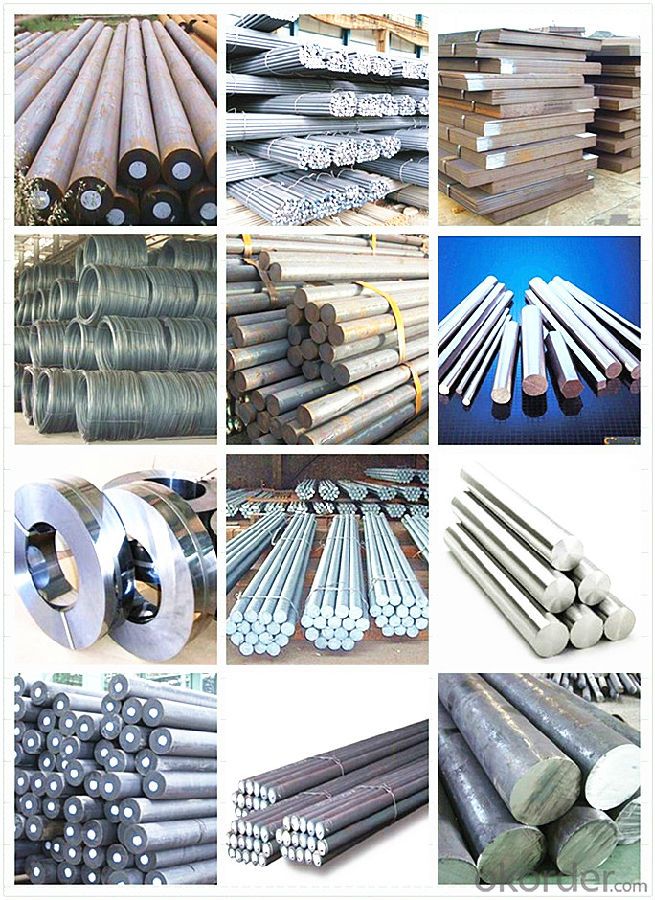
FAQ:
Are you a trading company or manufacturer? | Manufacturer |
What’s the MOQ? | 3 metric ton |
What’s your delivery time? | 15-35 days after downpayment received |
Do you Accept OEM service? | Yes |
what’s your delivery terms? | FOB/CFR/CIF |
What's the Payment Terms? | 30% as deposit,70% before shipment by T/T |
Western Union acceptable for small amount. | |
L/C acceptable for large amount. | |
Scrow ,Paybal,Alipay are also ok | |
Why choose us? | Chose happens because of quality, then price, We can give you both. Additionally, we can also offer professional products inquiry, products knowledge train (for agents), smooth goods delivery, excellent customer solution proposals. |
What's your available port of Shipment? | Main Port, China |
What’s your featured services? | Our service formula: good quality+ good price+ good service=customer's trust
|
Where are your Market? | Covering more than 160 countries in the world |
- Q: How does special steel contribute to the industrial machinery aftermarket industry?
- By providing high-quality and durable components, special steel plays a vital role in the industrial machinery aftermarket industry. It enhances machinery performance and longevity, which is crucial in this industry. One of the main advantages of special steel is its exceptional strength and resistance to wear and tear. Regular steel components deteriorate quickly due to heavy loads, extreme temperatures, and corrosive environments. However, special steel alloys are specifically designed to withstand these harsh conditions. This ensures that machinery operates efficiently for a longer period. In addition, special steel offers excellent machinability, making it easier to manufacture intricate and precise components. This enables aftermarket manufacturers to produce replacement parts that fit perfectly into existing machinery. As a result, downtime during repairs and maintenance is minimized. Special steel's machinability also allows for customization, as it can be easily shaped and modified according to the specific requirements of different machinery models. Moreover, special steel's exceptional heat resistance makes it ideal for producing high-temperature components used in industrial machinery. These components need to withstand intense heat without losing their structural integrity. Special steel alloys possess excellent heat resistance properties, ensuring that machinery can operate at high temperatures without compromising performance or safety. Furthermore, special steel contributes to the industrial machinery aftermarket industry by providing corrosion-resistant components. Machinery in industries such as oil and gas or marine is often exposed to corrosive substances or environments. Regular steel components are susceptible to corrosion, leading to premature failure and expensive repairs. However, special steel alloys are highly resistant to corrosion, enhancing the durability and reliability of machinery in these demanding conditions. Overall, special steel's unique properties, including strength, machinability, heat resistance, and corrosion resistance, significantly contribute to the industrial machinery aftermarket industry. By utilizing special steel components, manufacturers can enhance machinery performance, durability, and longevity, reducing downtime, and improving overall operational efficiency.
- Q: How does quenching and tempering affect the hardness of special steel?
- Quenching and tempering are heat treatment processes used to improve the hardness and mechanical properties of special steel. During quenching, the steel is rapidly cooled from a high temperature to room temperature or below, typically by immersing it in a quenching medium such as oil or water. This rapid cooling causes the formation of a martensitic structure, which is characterized by a high hardness and brittleness. The hardness of the steel increases significantly as a result of quenching. However, the brittleness of the martensitic structure makes it unsuitable for many applications. To alleviate this issue, the steel is then subjected to tempering. Tempering involves reheating the quenched steel to a temperature below the lower critical temperature, typically between 200-600 degrees Celsius, and holding it at that temperature for a specific period of time. This process allows for the transformation of the brittle martensite into a more ductile structure known as tempered martensite. The tempering process leads to a reduction in hardness but imparts improved toughness and ductility to the steel. The hardness of the steel after tempering will depend on the tempering temperature and time, with higher temperatures and longer times resulting in a greater reduction in hardness. By carefully controlling the tempering parameters, it is possible to achieve a balance between hardness and toughness that is suitable for the intended application. In summary, quenching and tempering greatly affect the hardness of special steel. Quenching increases the hardness by forming a martensitic structure, while tempering reduces the hardness but improves the toughness and ductility of the steel. The specific hardness achieved through these processes can be controlled by adjusting the quenching and tempering parameters to meet the desired mechanical properties for the specific application.
- Q: How does special steel perform in terms of wear resistance?
- Special steel performs exceptionally well in terms of wear resistance. It is specifically engineered to withstand abrasive forces, making it highly durable and long-lasting even in demanding environments. The unique composition and heat treatment processes used in its production enhance its hardness, toughness, and ability to resist wear, ensuring that it can withstand friction, impact, and other forms of wear and tear with minimal degradation.
- Q: How is special steel used in the packaging industry?
- Special steel is used in the packaging industry to create durable, corrosion-resistant, and high-strength packaging materials. It is commonly used for manufacturing metal cans, drums, containers, and closures, ensuring the safe storage and transportation of various products, including food, chemicals, and hazardous materials. The unique properties of special steel make it an ideal choice for packaging applications as it enhances the strength, longevity, and protection of the packaging, ultimately ensuring the quality and integrity of the goods being packaged.
- Q: How does special steel perform in aerospace applications?
- Special steel performs exceptionally well in aerospace applications due to its unique properties. It possesses high strength, excellent corrosion resistance, and exceptional heat resistance, making it ideal for manufacturing critical components such as turbine blades, landing gear, and structural frameworks. The use of special steel ensures the durability and safety of aerospace systems, enabling them to withstand extreme conditions, such as high temperatures and pressure, encountered during flight.
- Q: What are the different methods of improving the impact toughness of special steel?
- There are multiple ways to increase the impact toughness of special steel. Here are a few commonly utilized techniques: 1. Heat Treatment: Heat treatment is a highly effective method that involves subjecting the steel to specific heating and cooling processes. For example, quenching and tempering can significantly enhance the impact toughness of steel. Quenching rapidly cools the heated steel in a liquid medium like oil or water, while tempering involves reheating the quenched steel to a specific temperature and then slowly cooling it. This process refines the steel's microstructure, making it more resistant to fractures and improving its impact toughness. 2. Alloying: Another method is alloying, which entails adding specific elements to the steel composition. Elements like nickel, chromium, and molybdenum can enhance the toughness of steel by modifying its microstructure and improving its resistance to impact. These alloying elements reduce the formation of brittle phases and enhance the steel's ductility. 3. Grain Refinement: The grain size of steel is crucial in determining its impact toughness. By refining the grain size, the steel can exhibit improved toughness. This can be achieved through techniques like controlled rolling or severe plastic deformation. These methods break down large grains and promote the formation of smaller, more uniform grains, resulting in enhanced toughness. 4. Shot Peening: Shot peening is a surface treatment technique that involves bombarding the steel surface with small metallic or ceramic shots. This process induces compressive stress on the surface, reducing the likelihood of crack propagation and improving impact toughness. 5. Welding Techniques: When welding special steel, specific techniques can be employed to enhance its impact toughness. Preheating the steel before welding and controlling welding parameters like heat input and cooling rate help reduce the formation of brittle phases and improve the toughness of the welded joint. It's important to consider various factors like the desired level of toughness, the steel composition, and the intended application when selecting the appropriate method for improving the impact toughness of special steel. A comprehensive understanding of the steel's properties and specific requirements is crucial in determining the most suitable method for enhancing its impact toughness.
- Q: How does special steel perform in high-vibration applications?
- Special steel performs exceptionally well in high-vibration applications due to its superior strength, durability, and resistance to fatigue. These properties enable it to withstand intense vibrations without compromising its structural integrity, resulting in enhanced performance and extended service life in such demanding conditions.
- Q: How is alloy steel used in the manufacturing of gears and shafts?
- Alloy steel is commonly used in the manufacturing of gears and shafts due to its superior strength, durability, and resistance to wear and tear. The combination of iron with other elements, such as chromium, nickel, or molybdenum, enhances its mechanical properties, making it suitable for heavy-duty applications. Alloy steel gears and shafts can withstand high loads and torque, ensuring smooth operation and prolonged lifespan in various industrial sectors, including automotive, aerospace, and machinery.
- Q: What are the different types of bearing steel?
- There are several different types of bearing steel, including high-carbon chromium steel, high-carbon chromium-molybdenum steel, and case-hardened steel.
- Q: What are the different methods for improving the heat resistance of special steel?
- There are various techniques available to enhance the heat resistance of special steel. These techniques comprise: 1. Alloying: Enhancing the heat resistance of steel can be achieved by alloying it with specific elements. The addition of chromium, nickel, or molybdenum, for instance, significantly augments the steel's ability to withstand high temperatures. 2. Heat treatment: Heat treatment processes like annealing, quenching, and tempering can be employed to enhance the heat resistance of special steel. These processes refine the steel's microstructure and enhance its mechanical properties, including heat resistance. 3. Surface modification: The heat resistance of special steel can be improved by applying specialized coatings or surface treatments. Processes such as nitriding, carburizing, or ceramic coating create a protective layer on the steel's surface, preventing oxidation and enhancing its ability to withstand high temperatures. 4. Grain refinement: Heat resistance can be improved by controlling the grain size of the steel through processes like grain refinement or recrystallization. Smaller grain sizes reduce the diffusion of atoms within the material, making it more resistant to high temperatures. 5. Precipitation hardening: Precipitation hardening involves the formation of small particles within the steel matrix, strengthening the material and improving its resistance to heat. This technique requires a specific heat treatment process to enable the formation of these particles. 6. Controlled cooling: Optimizing the cooling process after heat treatment can also enhance the heat resistance of special steel. By controlling the cooling rate, the formation of unwanted phases or microstructural defects can be minimized, ensuring better heat resistance. 7. Material selection: Selecting the appropriate type of special steel with inherent high heat resistance properties is another method to improve heat resistance. Stainless steel, tool steel, or superalloys, for instance, are renowned for their excellent heat resistance and are often chosen for applications involving high temperatures. It is important to note that the choice of the suitable method or combination of methods for enhancing heat resistance depends on the specific requirements and limitations of the application.
Send your message to us
S235 S355 SS400 A36 HRC Hot Rolled Steel Coil/Hot Rolled Steel Sheet
- Loading Port:
- Tianjin
- Payment Terms:
- TT OR LC
- Min Order Qty:
- 3 m.t.
- Supply Capability:
- 100000 m.t./month
OKorder Service Pledge
OKorder Financial Service
Similar products
Hot products
Hot Searches
Related keywords
